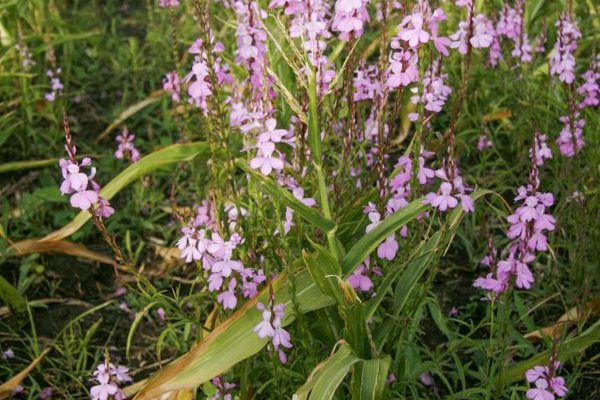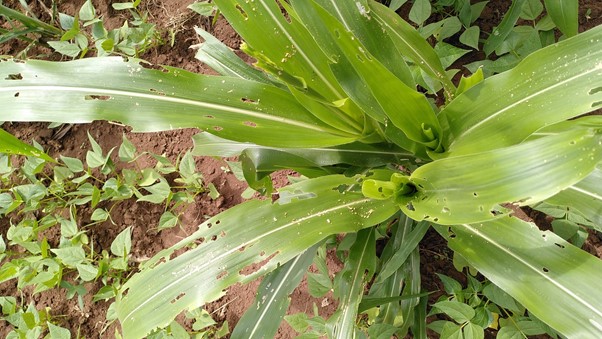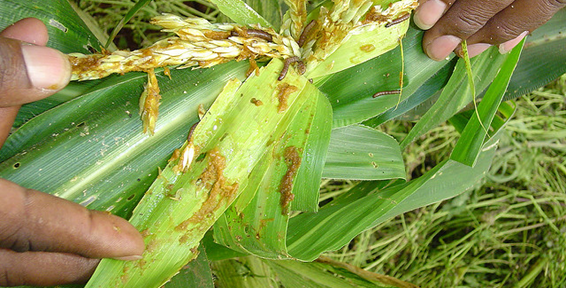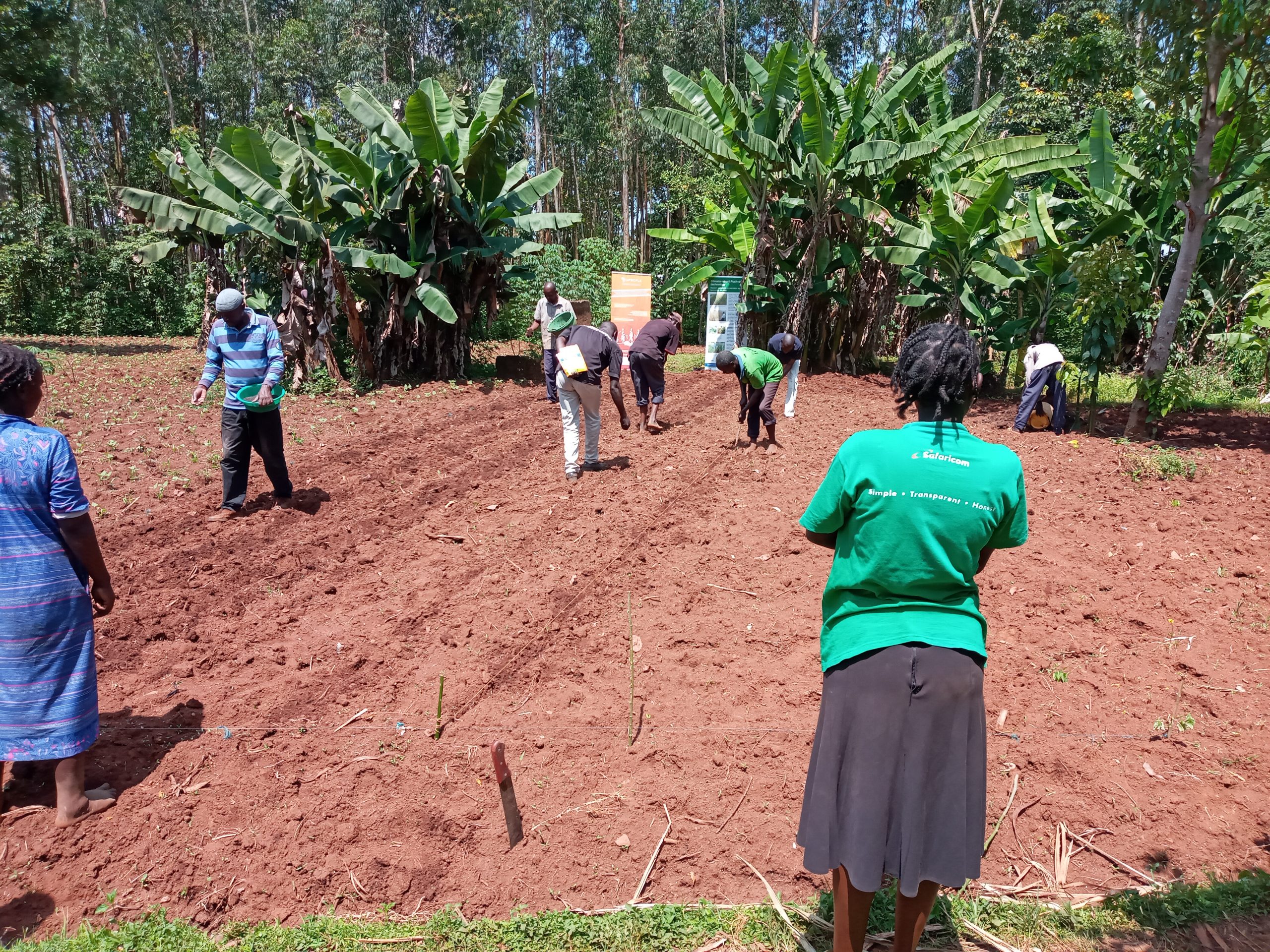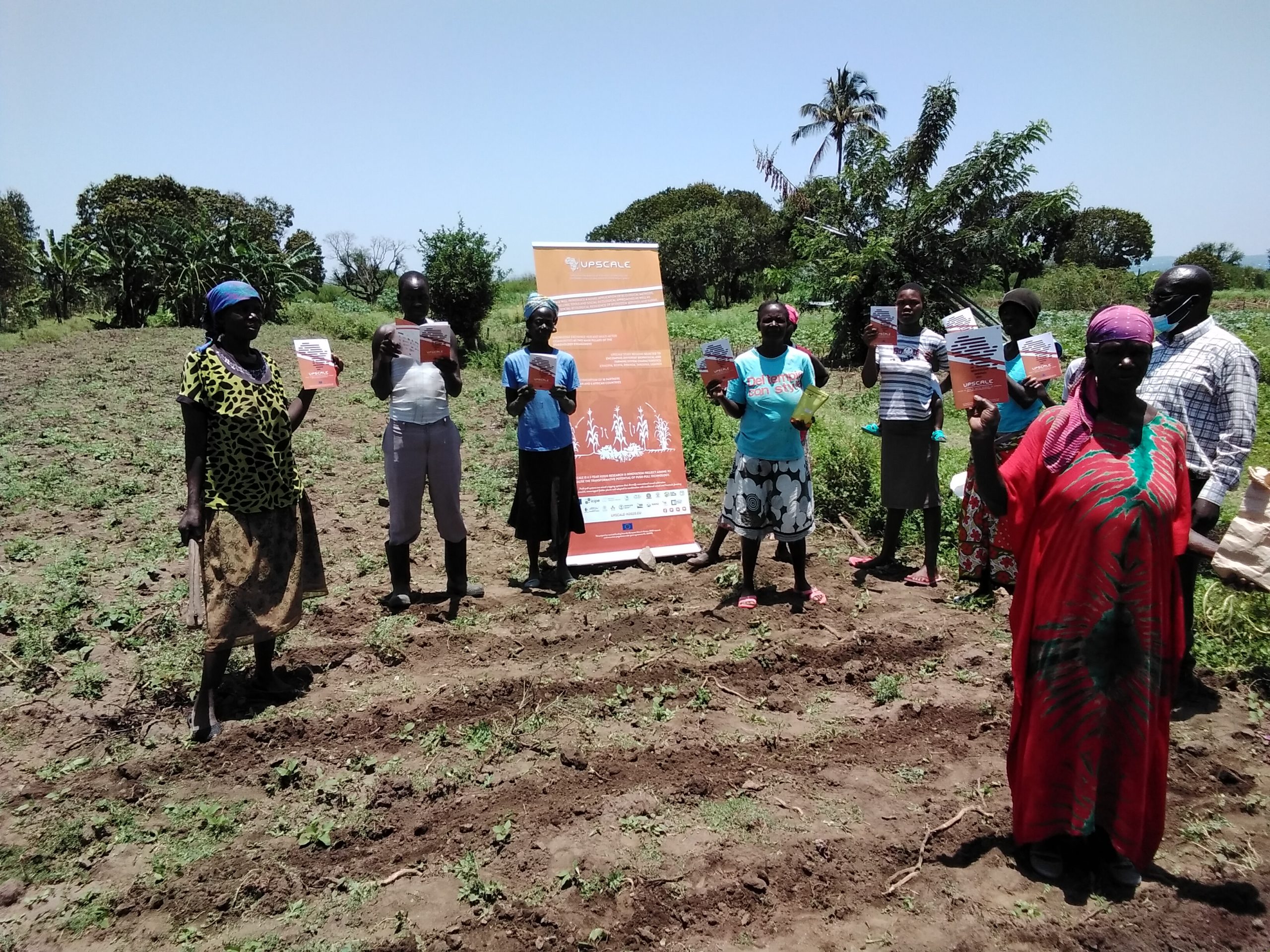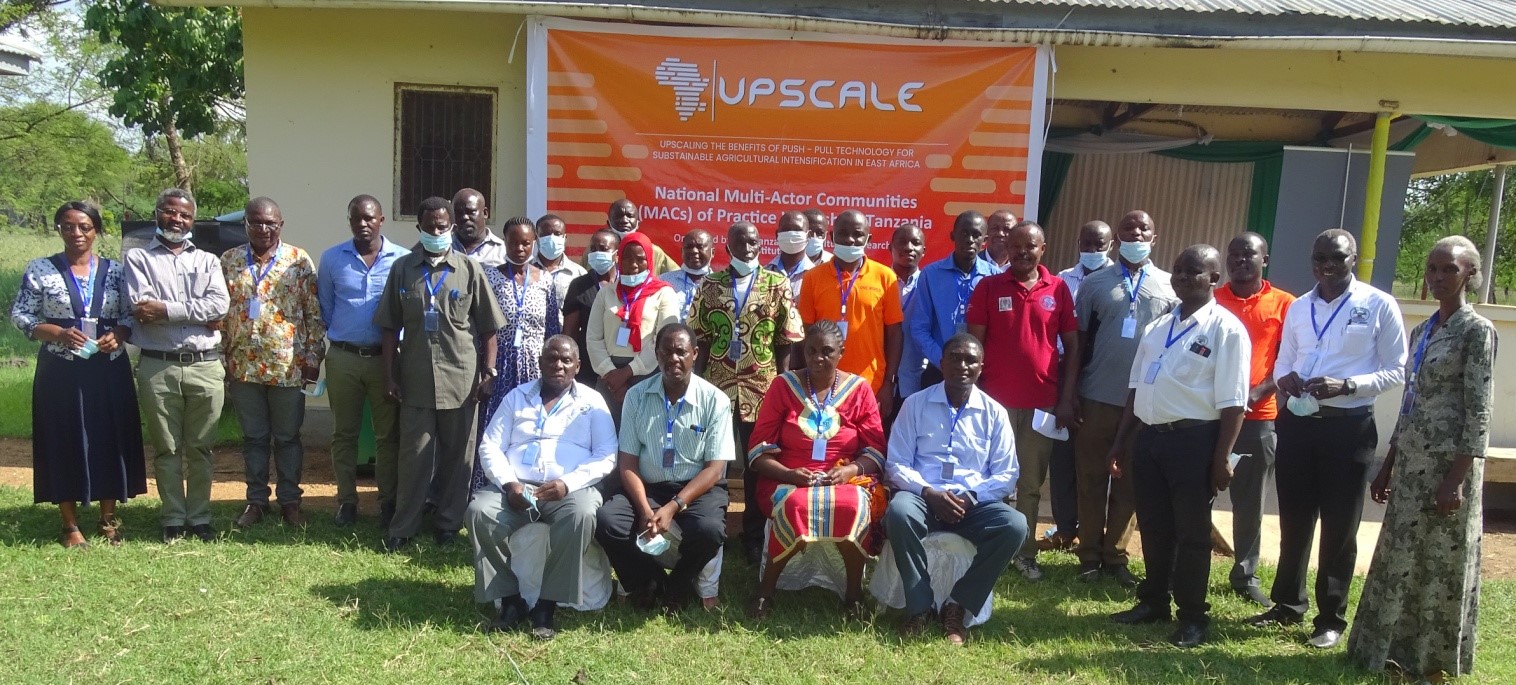
Farming practice • Pest/disease control
July 3, 2023
Pest/disease control • Push-Pull in practice
December 14, 2023
January 27, 2023
Production of maize, Zea mays L. (Poaceae), in sub-Saharan Africa is threatened by a new invasive pest, fall armyworm (FAW), Spodoptera frugiperda (JE Smith) (Lepidoptera: Noctuidae). To mitigate this threat, push–pull companion cropping, a system originally developed for management of lepidopteran stemborers, may be used to control FAW.
Agricultural production system • Soil management
January 27, 2023
Soil degradation is a major underlying cause of poverty and malnutrition in smallholder agrarian communities across the globe. Legume diversification, through polyculture or intercropping, is a strategy that increases yields and income while improving family nutrition.
Pest/disease control • Push-Pull in practice
December 14, 2023
Farming practice • Push-Pull in practice
August 9, 2023
UPSCALE partners regularly organize training and demonstration days – Roadshow events – with the aim to train the farmers and provide more information on the benefits and implementation of the Push-Pull technology. These take place on already established climate-smart push-pull… Continue Reading…
June 22, 2022
Farming practice • Push-Pull in practice
June 22, 2022
